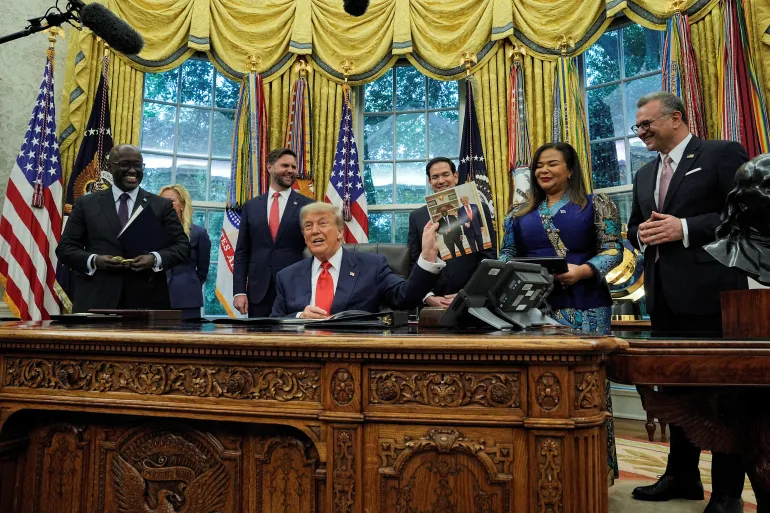Rwanda has confirmed that it will accept up to 250 deported migrants from the United States, becoming the third African country—after South Sudan and Eswatini—to sign a deal under President Donald Trump’s new deportation plan.
The Rwandan government said the decision was based on the country’s values of reintegration and rehabilitation, as many Rwandans themselves have experienced displacement. Government spokesperson Yolande Makolo said Rwanda will review each migrant case before accepting anyone.
This agreement is part of President Trump’s larger campaign to remove undocumented migrants from the US. Since returning to the office, Trump has pushed mass deportations, even sending people to countries they have no ties to. Many critics warn that this could lead to human rights violations, especially in countries with poor safety records.
Rwanda said it will only accept deportees who have no criminal background or those who have completed their jail time. It also promised to provide housing, healthcare, and job training for those approved to enter the country.
Who will be deported to Rwanda under this deal?
The US government has not shared full details, but Rwanda will not accept child sex offenders, and each deportee must be approved first. The migrants will receive support to help them start a new life in Rwanda’s growing economy.
Trump has also signed a $45 billion law to expand immigration detention centers and speed up deportations. Migrants have been sent to countries like Panama, El Salvador, and now South Sudan—often without enough time to appeal their cases. Courts and human rights groups have raised serious concerns.
This is not the first time Rwanda has signed a migration deal. In 2022, it agreed to receive asylum seekers from the United Kingdom, but the UK Supreme Court later blocked that deal in 2023, saying Rwanda was not a safe country for deportees.
Analysts say Rwanda’s new deal with the US may be a political move to build a closer relationship with Trump’s administration. Some believe it could also open the door for economic benefits, such as access to mineral-rich trade deals in the region.

